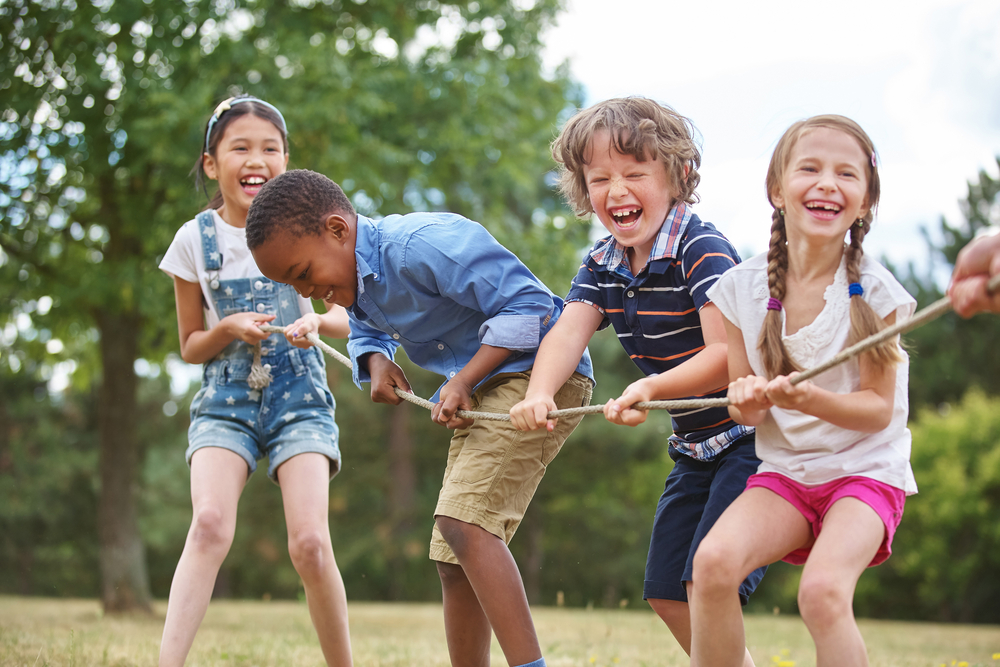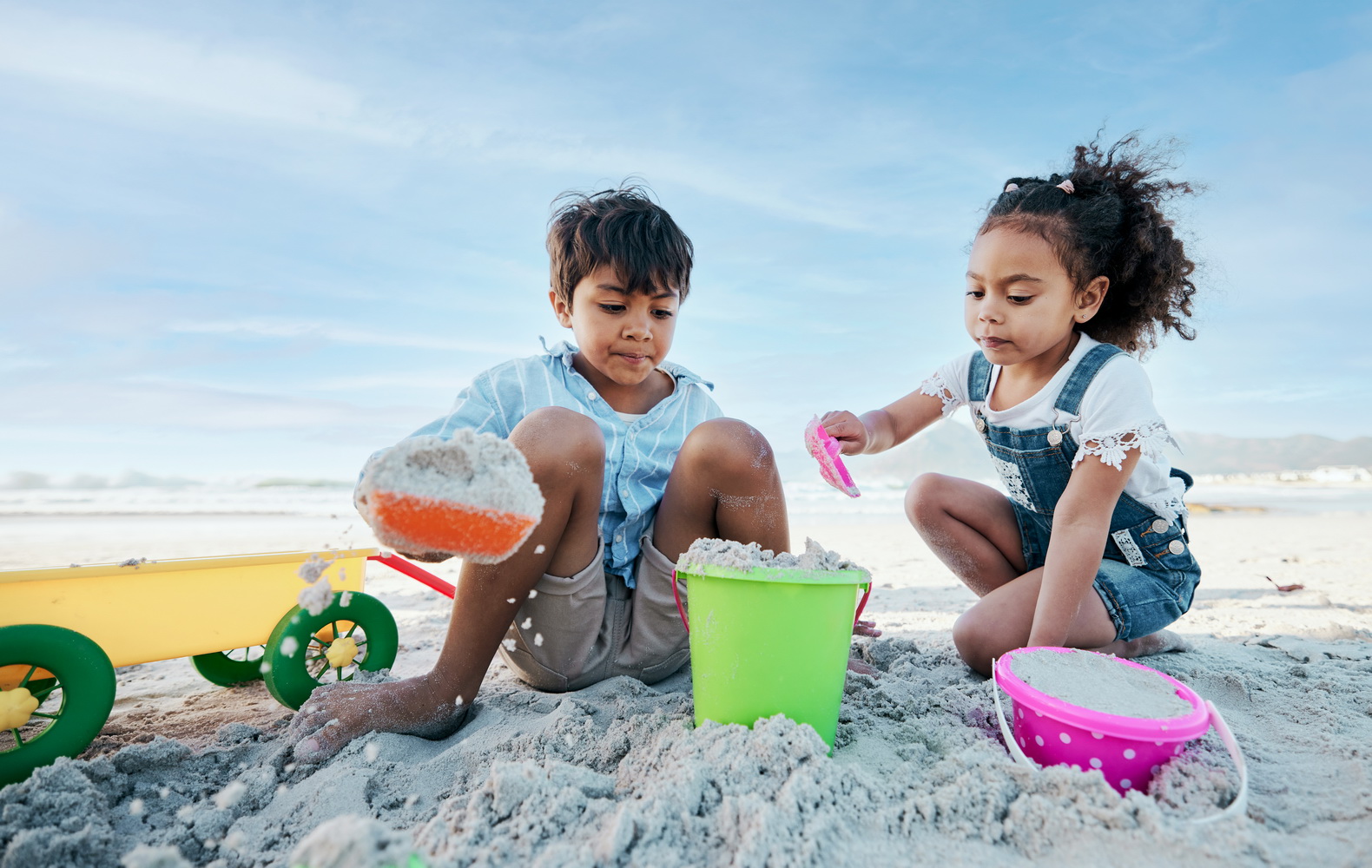Friendships Between Kids of Different Genders
Sept. 26, 2022
“Friendship is born at that moment when one person says to another, ‘What! You too? I thought I was the only one.” — C.S. Lewis.
As the saying goes, no man is an island. Friends are our acquired family – friendship is not something we are born to but a relationship that we build. It starts the moment we realize that we have mutual interests, beliefs and values with another person. And even though differences are still present, we respect those differences. It is a relationship wherein gender, race, social status, or anything else does not matter.
Friendships are often formed during childhood, and this form of friendship happens to be more genuine than what we have as adults. Between kids, there are no biases, they tend to focus on the fun and bonding experiences they have with one another.
Children under three years old easily interact with other people of any age. Kids do not care about the gender of the person they are interacting with, what matters is that they both have the same interest – playing. A child enjoys playing with peers regardless of gender. As a child gets older, they start recognizing gender differences and forming their preferences.

The director of the T. Denny Sanford School of Social and Family Dynamics at Arizona University, Richard Fabes, Ph.D., explains that "by age 5 or 6, children spend the vast majority of their playtime with peers of the same gender." Based on that, one might think that boys, girls and kids of diverse gender would tend to prefer their own kind and cannot be friends between each other because their likes and interests are not similar. While this can be true, children’s ways of playing have more similarities than differences. When talking about interactions between boys and girls, David Walsh, a psychologist and author of Why Do They Act That Way, states that "when boys and girls do play together, many of those differences start to disappear." Later he writes, "The differences are generalizations. But on an individual basis, there is a tremendous amount of overlap."
According to Psychology Today, 80% of boys are equivalent or “indistinguishable” from 80% of girls in their amount of rough play. And when it comes to transgender kids, all those common stereotypes make even less sense.
Gender-diverse friendships are quite common and most likely occur outside of school – they often happen because the children are neighbors or because their families are friends. A gender-diverse friendship is special because it gives children the opportunity to experience their mutual interests as well as their differences, thus enriching each other’s lives.
How does a gender-diverse friendship benefit a child?
“Girl-boy friendships matter. They give kids a chance to explore themselves outside of constrictive gender scripts, and, ideally, question stereotypes,” says Elisa Strauss, a CNN writer. We are living in a world full of gender prejudices, they are so much all over the media that we often fail to notice them. However, children are not born with those ideas. Having gender-diverse friendships can benefit children in many ways:
- It gives them a chance to explore their interests outside their gender. Older children tend to play on what they think is more appropriate for their gender. The media shows that girls should play with dolls, and boys should play with cars, and this is one common stereotype. When I asked my students what their favorite toys are, one boy said that he loves playing with cars and dolls together with his sister – this is a fitting example of how children get to explore what they like without the constrictive script of their gender, they focus on having fun and bonding.
- They become more flexible in problem solving. Children are different in multiple ways, and how they approach problems and disagreements differs too. Rachel Simmons, the co-founder of a national nonprofit organization Girls Leadership, points out that children need to be exposed to numerous ways of conflict resolution and learn to take it seriously from an early age. Gender-diverse friendships help kids join efforts in brainstorming problems and bring different ideas to the table. For instance, some are likely to focus on the rules and others are more inclined to talk it out – which are different strategies that can bring good results if used together.
- They learn how to express their emotions. The ways of emotional expression may differ across genders. A gender-diverse friendship gives children a chance to be more open about their feelings with other people without feeling awkward. The practice of expressing emotions at a young age will help them form healthy and positive relationships as they get older.
- They learn to understand and appreciate differences. Any friendship conditions children to find out about the interests, strengths, and weaknesses of another person. A gender-diverse friendship helps kids understand and accept others’ differences at a young age and teaches them to empathize with other genders and be respectful of them.
- They will form better relationships in adulthood. Being friends with people of different genders allows children to develop successful and diverse communication strategies thus preparing them for adult friendships, partnerships and romantic relationships.

How to support your child’s gender-diverse friendship:
It is advantageous for parents to encourage their children to form gender-diverse friendships. However, one should keep in mind that there are things parents cannot do, such as alter their child’s interests or personality – for example, from introversion to extraversion. If your child is not comfortable making new friends, then do not force them because that pressure in making social contacts could influence the way they build relationships. Friendships are formed through sharing interests and accepting differences. If your child already has this kind of friendship, here’s how you can support it:
- Never tease your child about their friendships. Treat your child’s friends fairly. Teasing your child, even as a joke, will cause them to be self-conscious and awkward around their friends. This might also stop them from sharing their experiences with you in the future. Instead, make them feel okay about being friends with anyone – as long as you know who those friends are. It will also teach your kid to be respectful of others’ friendships.
- Teach your child how to handle teasing. You may not tease your child about their friendships, but it can still happen outside your home or when you are not around. It is best to equip your kid with some responses and to practice them. If your child is asked about their friendship, some good replies would be: “We are pals” or “We are great friends!” If someone asks your child whether they like any particular friend of theirs, your child could say “I like all my friends because they are all special to me.” Kids can be cruel and continue teasing, so it is better to train your child not to listen and to ignore them.
- Explain what is proper and healthy. Have conversations about what is proper in friendships. Talk about the value and importance of friendship. Teach them that friends share things and support each other. Children are capable of understanding those ideas; just make sure it’s a light conversation and that they do not feel being reprimanded.
- Stop generalizing. Children can easily pick up ideas of what is for girls or for boys, like “boys play sports, and girls play tea parties”. Instead, get your kid understand that each child is unique and free to choose what they like best. Help your child explore their interests, and support their own choice of games and activities.
- Have a get together. Let your child invite friends over and suggest some activities they can do together. This helps children bond and feel more relaxed among kids of other genders.
- Make sure your child has other friends. Friends come and go, and at times your child can be closer to one particular friend than to others. A gender-diverse friendship can be fragile because the peer pressure grows as kids get older. Encourage your child to foster their other friendships too, so that they had other friends to talk to in case one particular friendship ends and they feel hurt.
Children will become adults, and they will need to work and build connections with different people, including people of different genders. Helping your child to engage in a positive gender-diverse friendship will prepare them for future life situations. This kind of friendship will strengthen their skill in interacting with more people without fear of judgment or awkwardness.
Forming friendships is up to your child – not to you, but as a parent you can talk to them about the importance of diversity and acceptance, teach them to observe other’s differences and deal with them in a respectful way, as well as create a safe environment where your child can play and work together with their peers. Let them explore diverse kinds of friendship while guiding and supporting them.
About the author
Jorezza Antonio - Behavioral Therapist.
Metro Manila, National Capital Region, Philippines.
Links and references:
- https://www.smartparents.sg/child/social-life-skills/5-tips-help-junior-build-healthy-boy-girl-friendships
- https://www.cnn.com/2019/01/22/health/boy-girl-friendships-parenting-strauss/index.html
- https://www.scarymommy.com/girl-boy-friendships-special/
- https://www.theguardian.com/commentisfree/2013/dec/10/boys-need-girls-as-friends-feminism
- https://www.parents.com/kids/development/social/encouraging-mixed-gender-friendships/












